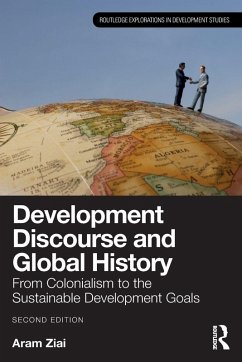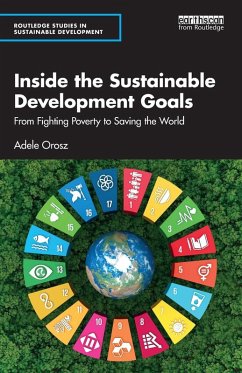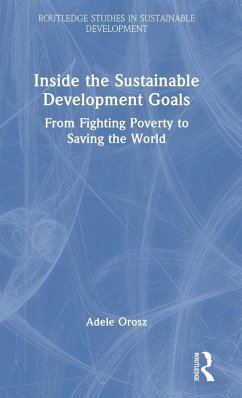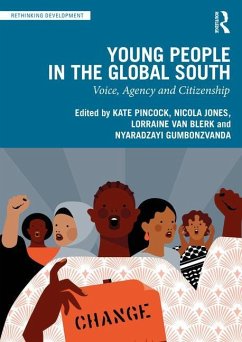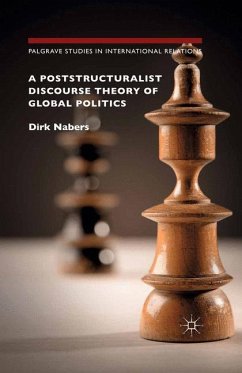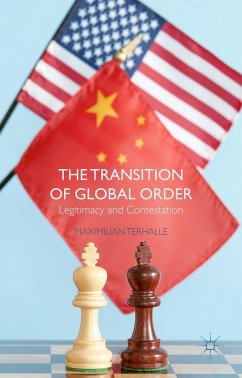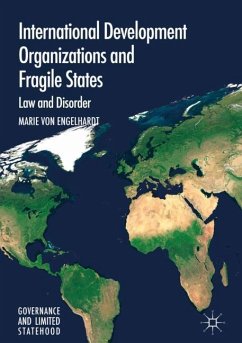
Development Discourse and Global History
From Colonialism to the Sustainable Development Goals
Versandkostenfrei!
Versandfertig in 6-10 Tagen
137,99 €
inkl. MwSt.
Weitere Ausgaben:

PAYBACK Punkte
69 °P sammeln!
Development Discourse and Global History introduces readers to the shifting ways in which people have been talking and writing about 'development' over time, and the rules governing the conversation.Drawing on the methods of Michel Foucault, Ziai's ground-breaking book traces the origins of development discourse back to late colonialism and notes the significant discontinuities that led to the establishment of a new discourse and its accompanying industry. This book goes on to describe the contestations, appropriations and transformations of the concept over time. It shows that trends which ha...
Development Discourse and Global History introduces readers to the shifting ways in which people have been talking and writing about 'development' over time, and the rules governing the conversation.
Drawing on the methods of Michel Foucault, Ziai's ground-breaking book traces the origins of development discourse back to late colonialism and notes the significant discontinuities that led to the establishment of a new discourse and its accompanying industry. This book goes on to describe the contestations, appropriations and transformations of the concept over time. It shows that trends which have emerged since the 1980s, such as an emphasis on participation and ownership, sustainable development, and free markets, are incompatible with the original rules and so lead to serious contradictions. The Eurocentric, authoritarian and depoliticising elements in development discourse are uncovered, whilst still recognising its progressive appropriations. This new edition includes revisions throughout, and an important new chapter on race and racism, as well as a discussion of the evolution of the Sustainable Development Goals.
This book is perfect for students and researchers in development studies, global history and discourse analysis as well as an interdisciplinary audience from international relations, political science, sociology, geography, anthropology, language and literary studies.
Drawing on the methods of Michel Foucault, Ziai's ground-breaking book traces the origins of development discourse back to late colonialism and notes the significant discontinuities that led to the establishment of a new discourse and its accompanying industry. This book goes on to describe the contestations, appropriations and transformations of the concept over time. It shows that trends which have emerged since the 1980s, such as an emphasis on participation and ownership, sustainable development, and free markets, are incompatible with the original rules and so lead to serious contradictions. The Eurocentric, authoritarian and depoliticising elements in development discourse are uncovered, whilst still recognising its progressive appropriations. This new edition includes revisions throughout, and an important new chapter on race and racism, as well as a discussion of the evolution of the Sustainable Development Goals.
This book is perfect for students and researchers in development studies, global history and discourse analysis as well as an interdisciplinary audience from international relations, political science, sociology, geography, anthropology, language and literary studies.




